Submitted by WA Contents
MVRDV proposes changeable structural system for the new mixed-use tower in Germany
Germany Architecture News - Jan 25, 2019 - 05:54 20330 views
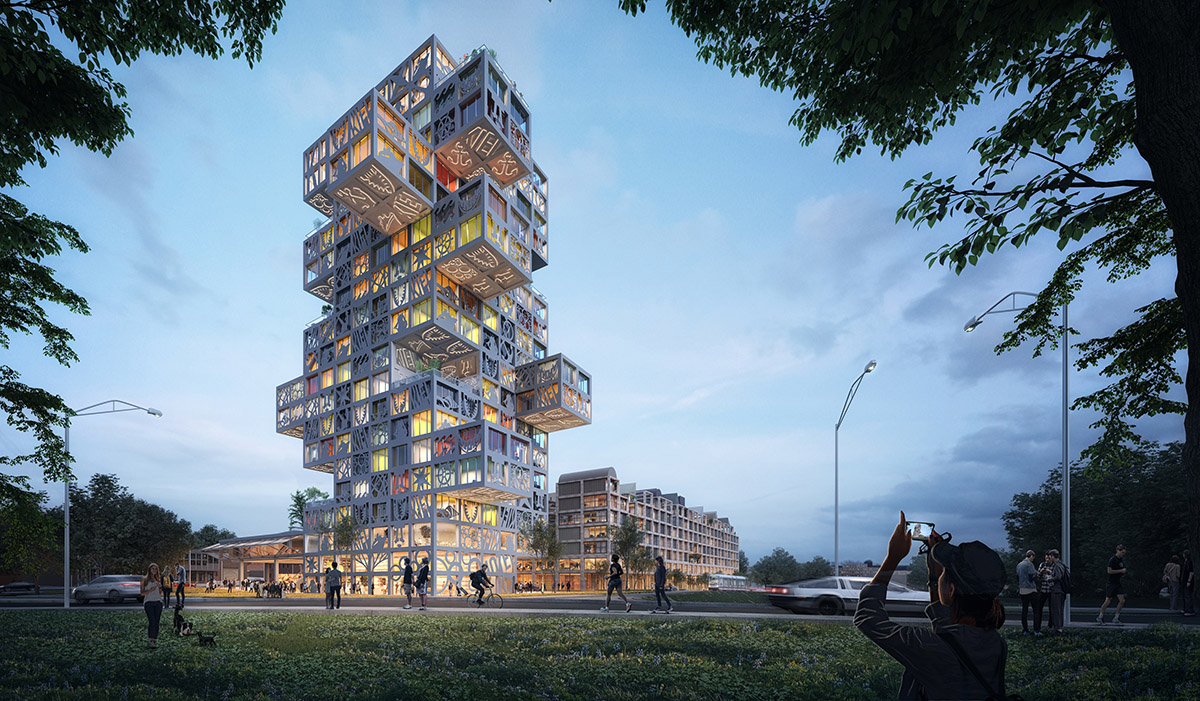
MVRDV has released design for a new mixed-use tower that is made of changeable structural units to adapt easily to the needs and desires of the community as the design development progresses.
The 65,000-square-metre mixed-use complex will be built in a post-industrial site in Kiel, Germany. The proposal, which includes a hotel, offices, residences, commercial space, and an event space, follows a flexible design system, rather than a fixed and unchangeable plan, allowing the design to adapt to the different needs.
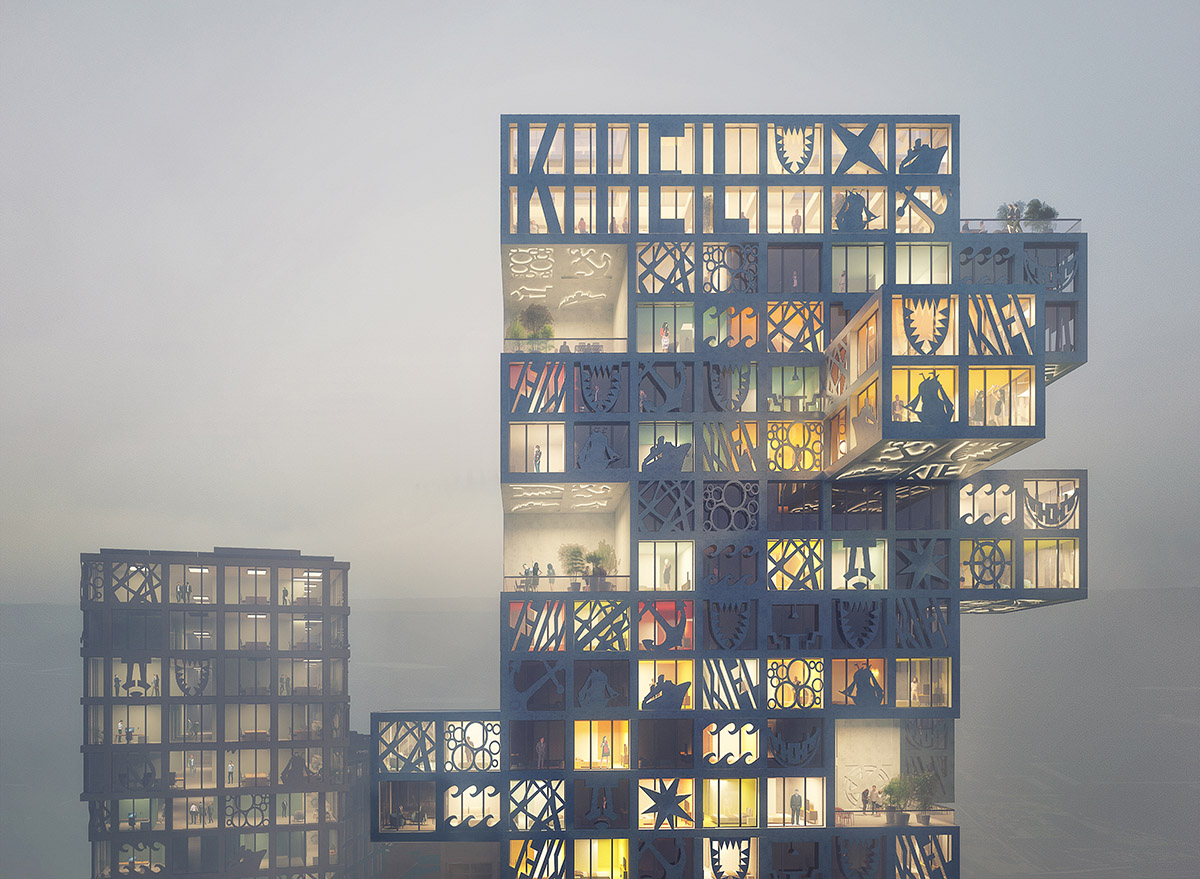
Named KoolKiel, the proposal is located in a formerly industrial area in Kiel, near the southernmost tip of the Kiel Fjord. Currently it is occupied by a large, single-storey building, which was originally used for storing chains for ships; however, in more recent times this location has become more notable for its connection to Germany’s famous Werner comics, which were printed in the building from the early 1980s.
The building is now known as W8 Medienzentrum, and is home to a variety of companies working mostly (but not exclusively) in media and the creative industries. This collection of tenants has given the area a unique and charismatic identity, which strongly influenced MVRDV’s subsequent design.
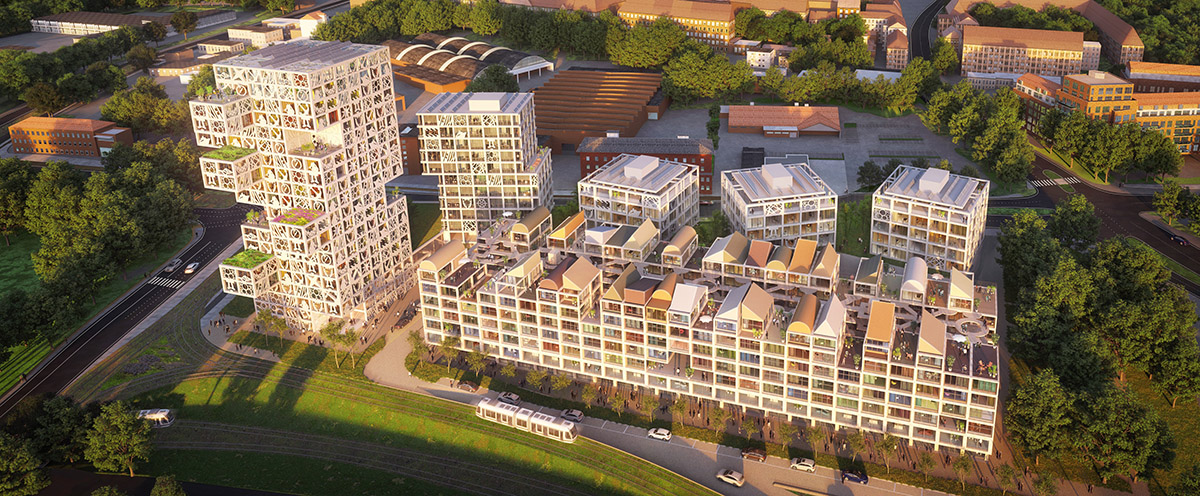
MVRDV will retain the existing structure of the W8 Medienzentrum as commercial units, topping it with apartments. Next to this, a new building is proposed with a zig-zagging plinth containing offices and shops, topped by several cubic blocks of housing, and a tower of office spaces.
At the end of the site, a 250-room hotel tower connects to the aforementioned plinth through a public event space, which will be used to host exhibitions and events organised by the community.

Lively exterior spaces forms the key components of the project: a courtyard between the buildings is filled with a variety of street furniture for the residents to occupy, while a rooftop park snakes its way around the three cubic blocks of housing.
The project’s most eye-catching element is the façade panels, made from fibre reinforced concrete, which sit in front of the window and display a variety of icons inspired by the creative output of the locals.
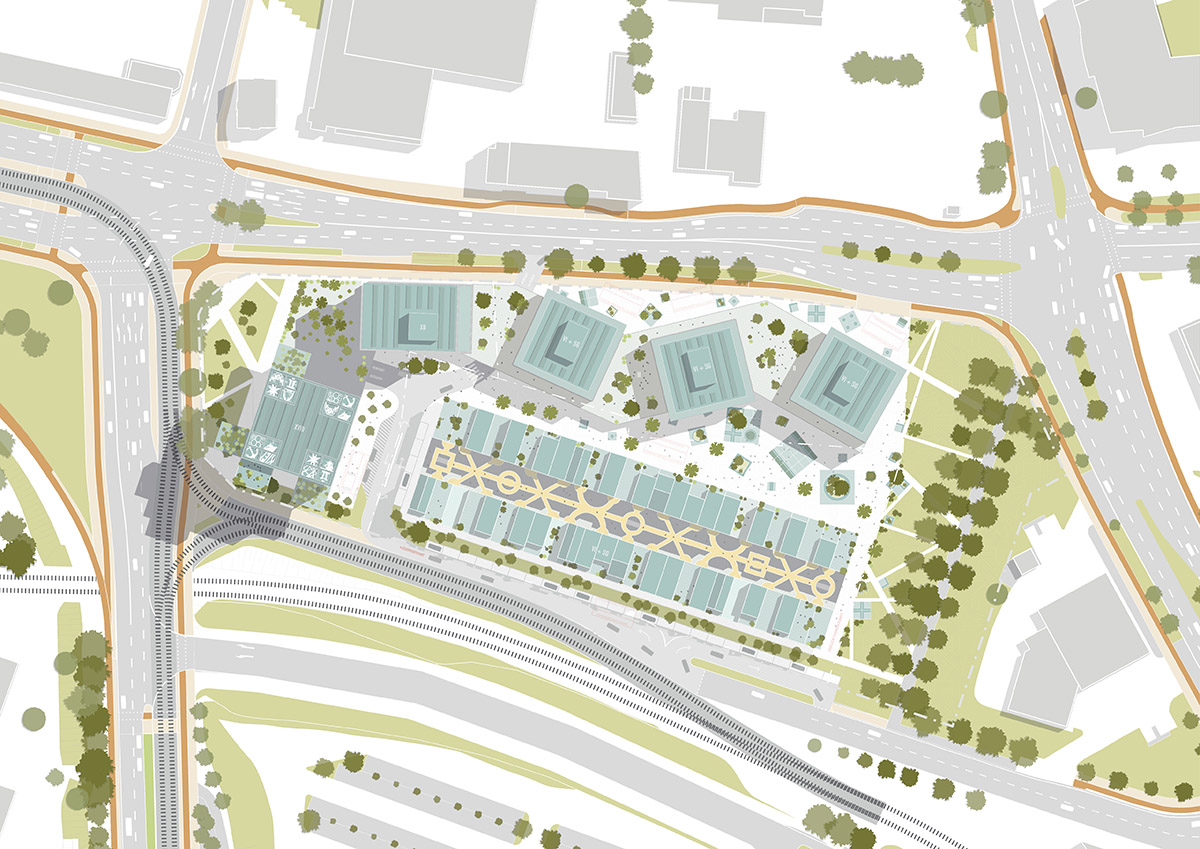
Site plan
"In a location with such a dynamic and creative existing community, it’s obvious that the community should have a say in this development," said Jacob van Rijs, principal and cofounder of MVRDV.
"KoolKiel is not only inspired by them, but it also allows them to influence the proposal—we’re presenting them with not just a design, but also a question: ‘how ‘Kool’ do you want it?."
Within this arrangement, the design proposal includes many opportunities for community input. By considering the design not as a fixed concept but as a flexible system, the building as it is eventually constructed might fall anywhere on a spectrum of options, from a conservative series of boxes to a wacky yet charismatic collection of cantilevers and iconography.
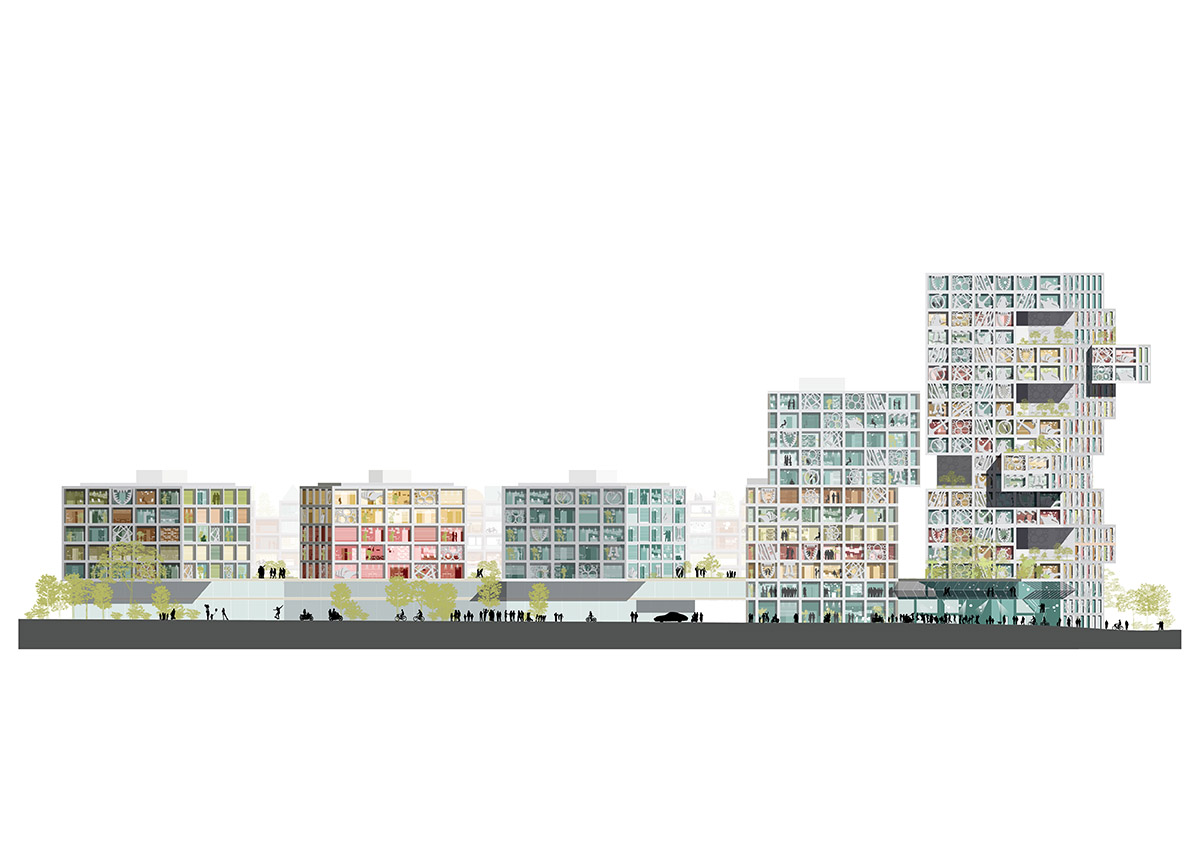
Elevation-1
This flexible design system includes options to change the size and number of cantilevers on the hotel tower, to change how much of the building is covered by pictographic panels, and to alter the size, number, and layout of apartments placed above the existing W8 building.
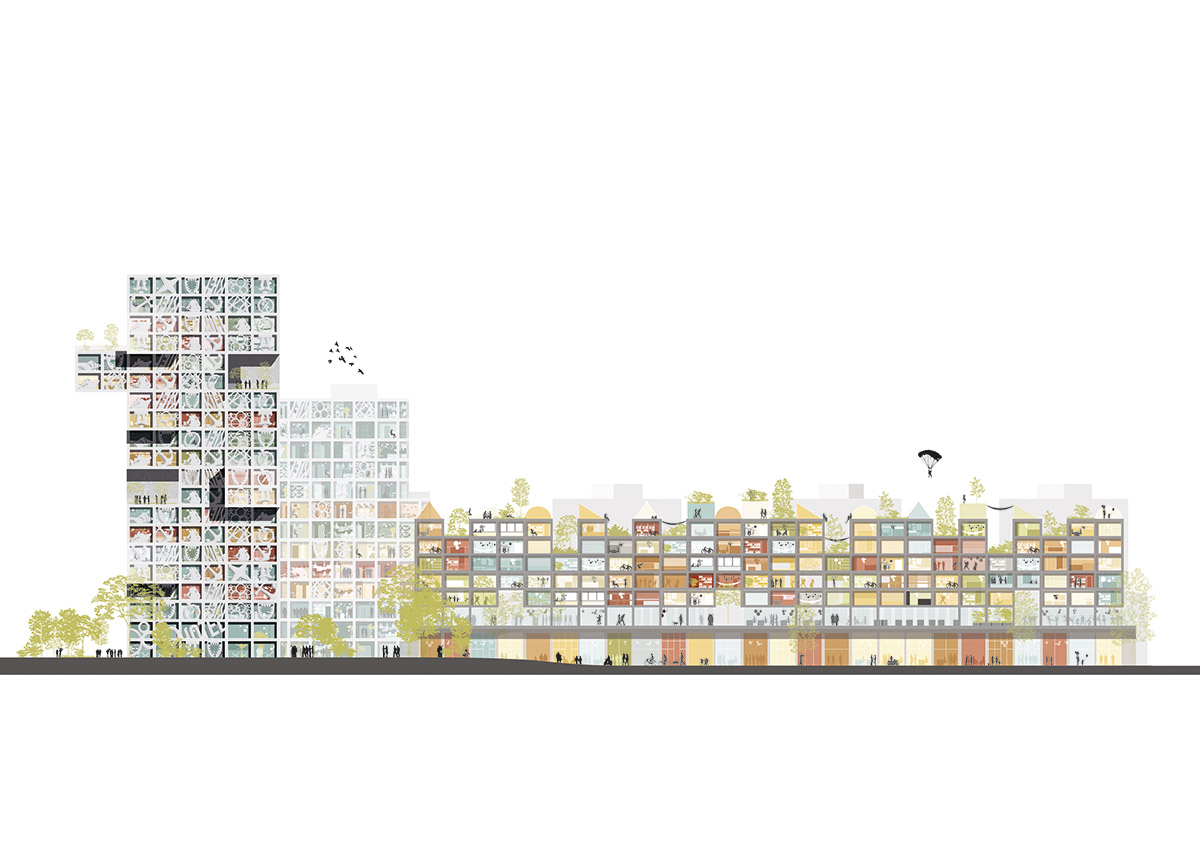
Elevation-2
Project facts
Project Name: KoolKiel
Location: Kiel, Germany
Year: 2018+
Client: Kap Horn GmbH
Client Spokesperson: Ralph Müller-Beck, Staatssekretär a.D. / State Secretary (ret.)
Size & Program: ca. 65,000 sqm (Hotel, Office, Event, Restaurants, Shops, Housing, Collaborative Offices)
Architect: MVRDV
Principal-in-charge: Jacob van Rijs
Design Team: Philipp Kramer, Bartlomiej Markowski, Ruggero Buffo, Bartosz Karasinski, Christine Sohar, Daniel Mayer, and Eleonora Lattanzi
Visualization: Antonio Luca Coco, Luca Piattelli, Masoud Khodadadi
Partners
Structure: Werner Sobek
Fire: Wenzel + Wenzel
Cost calculation: Wenzel + Wenzel
All images © MVRDV
> via MVRDV
